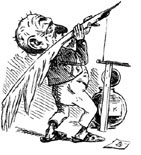
Are Revelation & Modernity Compatible?
THE DANGER OF “DOUBLE TRUTH”
“Although de Lubac framed his move as necessary to rectify these deformities [of individual concern for salvation], he is vague and one wonders if, on an apologetic level at least, it is the doctrine of a populated hell which itself is the problem, because these ‘failings’ could be blamed in some respects on the founder of the Jesuits himself, Ignatius of Loyola, who included in his Spiritual Exercises a detailed meditation on one’s particular judgement and the torments of hell.”
— Jon Kirwan,
An Avant-garde Theological Generation
“While Catholic theology is always a reflection on Revelation in some way and that such reflections become embedded in historically embedded practices, Revelation nonetheless is something received, not something constructed. Being a Catholic means that one regards oneself as the recipient of the gift of faith, not the creator of a worldview with some Christian ingredients.”
— Tracey Rowland, Catholic Theology
The questions of how and whether the Catholic Church relates to modernity have been with us now for almost two centuries, if not longer. Does revelation address something permanent to mankind that is necessary for mankind’s ultimate good? Does human nature abide intact over time or does it sporadically change? Must the Church adapt herself to modernity in such a way that all the elements of revelation said to be of divine origin are transformed into aspects of a modern worldview that is essentially independent of, and indeed hostile to, the classical understanding of what revelation means? Can man explain what he is, using no other sources but his own powers? Many of these issues were confronted in modern French Catholic intellectual history. It is the burden and merit of An Avant-garde Theological Generation: The Nouvelle Théologie and the French Crisis of Modernity, Jon Kirwan’s highly detailed history of French intellectual life, particularly in the early to mid-20th century, to account for what might be called “the drama of French Catholicism” — mindful of the title of Fr. Henri de Lubac’s famous book The Drama of Atheist Humanism.
Dr. Kirwan is a professor of theology at St. Patrick’s Seminary in Menlo Park, California. His latest book applies what he calls “generational theory” to our understanding of the thought of men who belong to a given time and place. Basically, a generational theory of history suggests that to understand the thought of a given decade or era, we need to see it in the contrasting light of the generations just before and just after it. It is extremely difficult for one generation to understand another because of their differing background experiences. We do not necessarily learn from history; nor do we simply repeat it. A generation will usually form itself around a great or striking event — e.g., a war, a natural or economic catastrophe, a revolution, even an invention like the cotton gin or a theory like evolution. Those who live through these events are shaped by them in ways that are difficult to understand for those who do not share this primal experience.
Whether such a theory is merely historicism, the view that truth is relative to the time and place in which it occurs, can be debated. Dr. Kirwan uses the theory to explain the difficulties certain generations of French intellectuals had in dealing with other generations’ understandings of the world and its meaning. It was easy for one generation to perceive the next as heretical. What Kirwan hopes to show is that by considering the historical context of the opinions of one generation, it is possible to see that other generations expressed similar truths but in a different context. If one did not actually fight in World War I, as many of the intellectuals under discussion here did, one cannot really understand their dismal outlook about a so-called future without war. The optimism of the 19th century was shattered by World War I. The return to a more optimistic period in the early 1920s made the men of the World War I generation seem overly pessimistic about man’s prospects. World War II led to a similar impasse.
Dr. Kirwan gives a brief biographical account of each of the men who played a major or minor role in this drama. He records the friendships, studies, houses of studies, books, and fallings-out that occurred. The central figures of the book were well known to each other: Loisy, Tyrrell, Blondel, Bernanos, Maritain, Chenu, Daniélou, Congar, Rahner, de Lubac, Fessard, Lebreton, Huby, and many others. Locating them within the schema of generational theory is not a simple task. Some, like Rousselot and Péguy, died in World War I; others lived to old age, as did de Lubac, who was wounded in the war. The secular French government did not excuse priests from the draft. Ironically, the presence and deaths of priests at the front served to bring the French Church back into public life.
You May Also Enjoy
ISIS capitalizes on the West's ignorance of its own history. The Pope and bishops should allow competent theologians and historians to publicly defend the faith against Muslim propaganda.
Cardinal Burke, the Church's foremost expert on annulment, said the process is "essentially connected with the doctrinal truth" of the Church, and changes should be considered with great care.
Carinal Kasper grounds mercy in New Testament revelation and the Fathers of the Church. But his sources often do not say what he claims they say.

